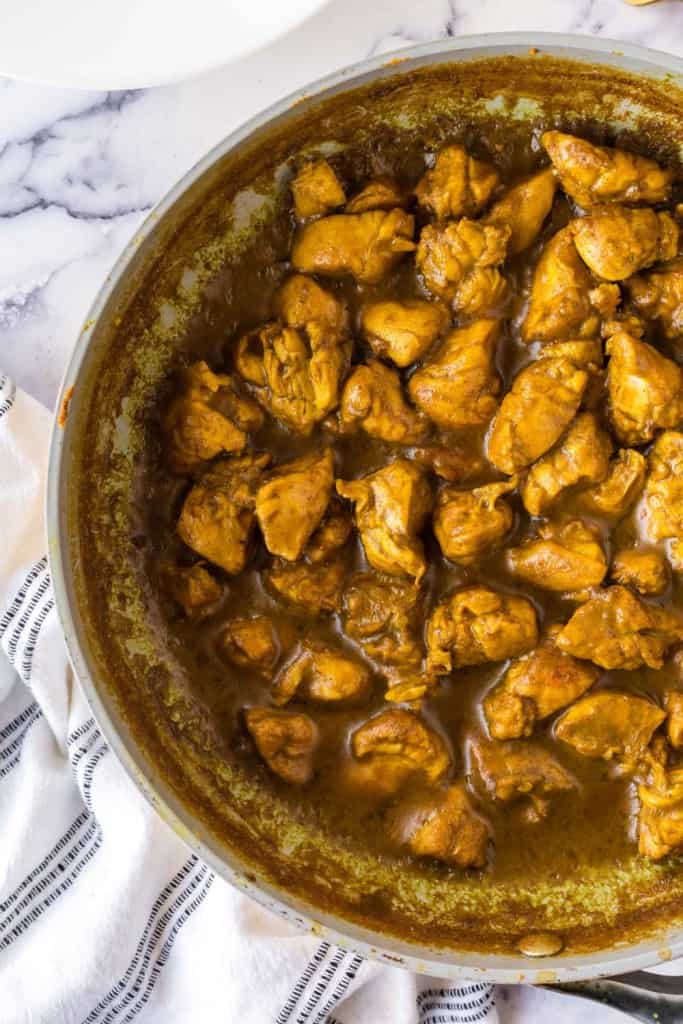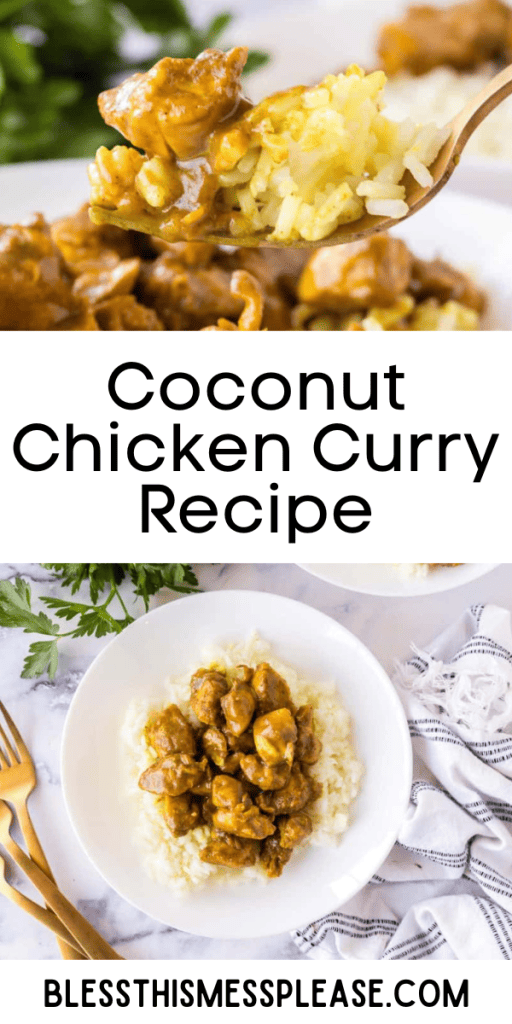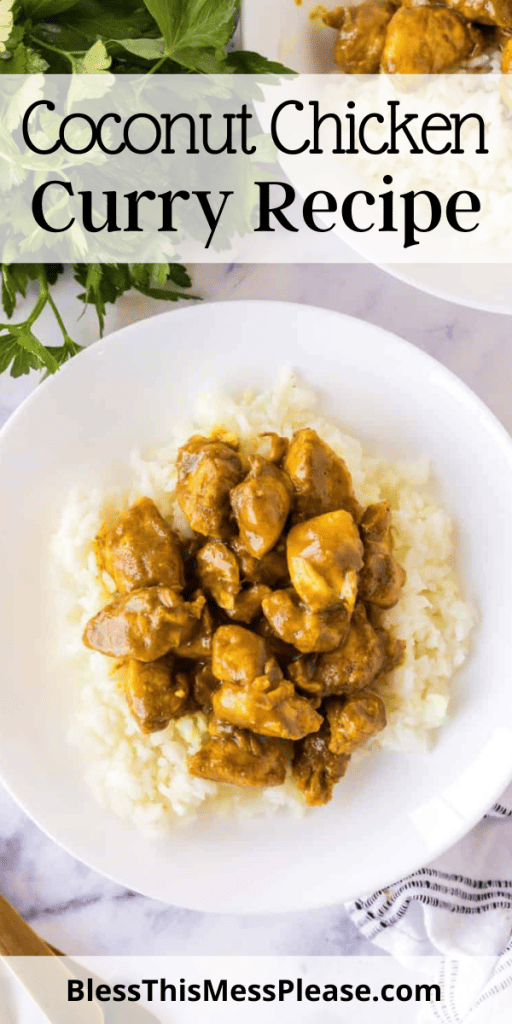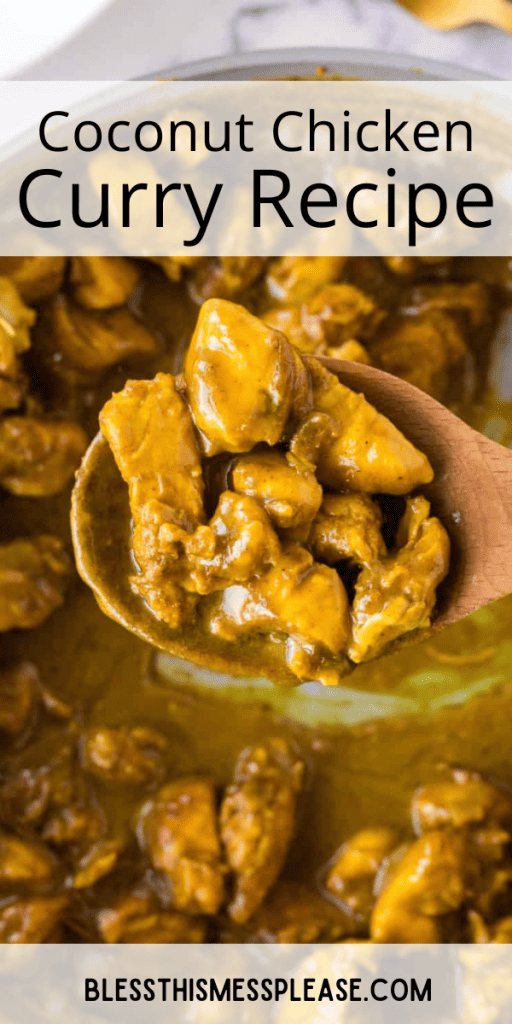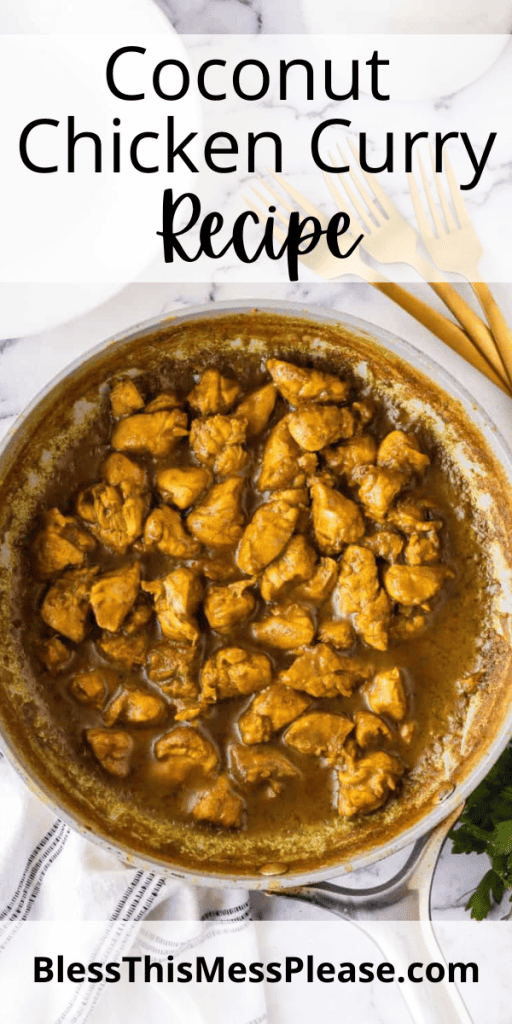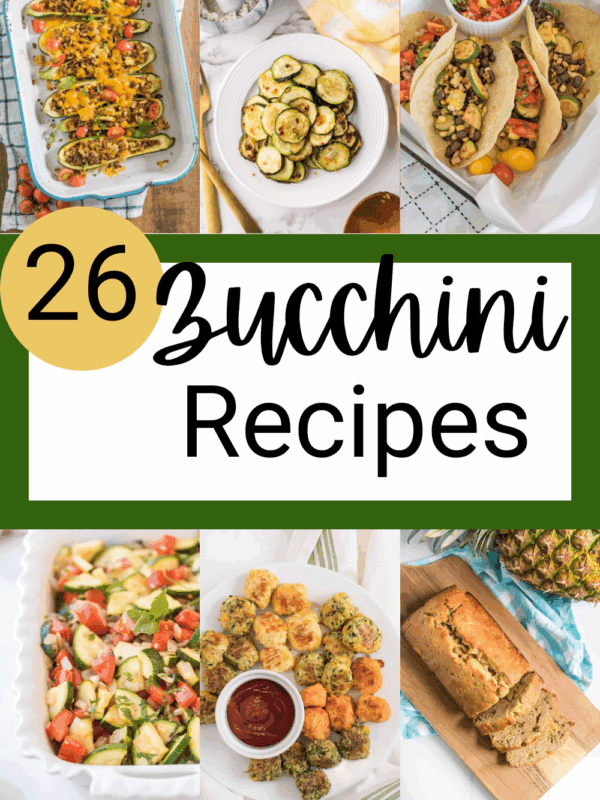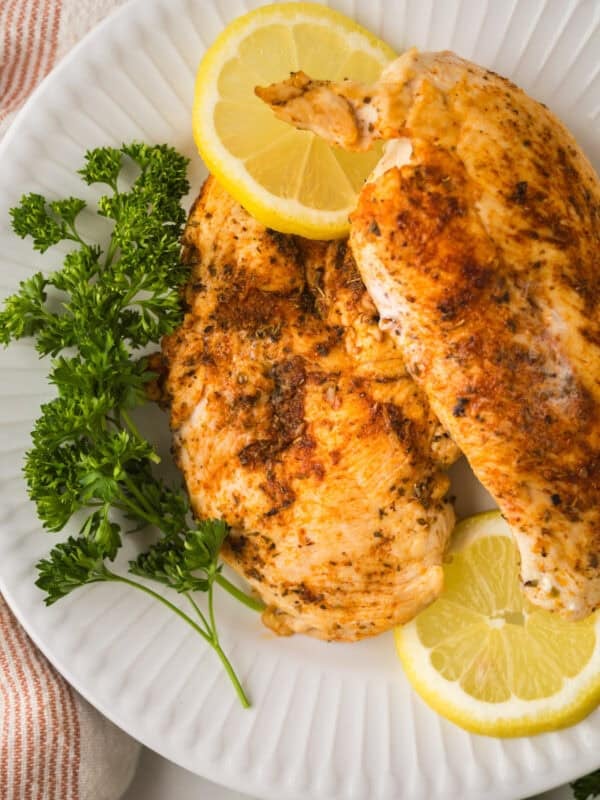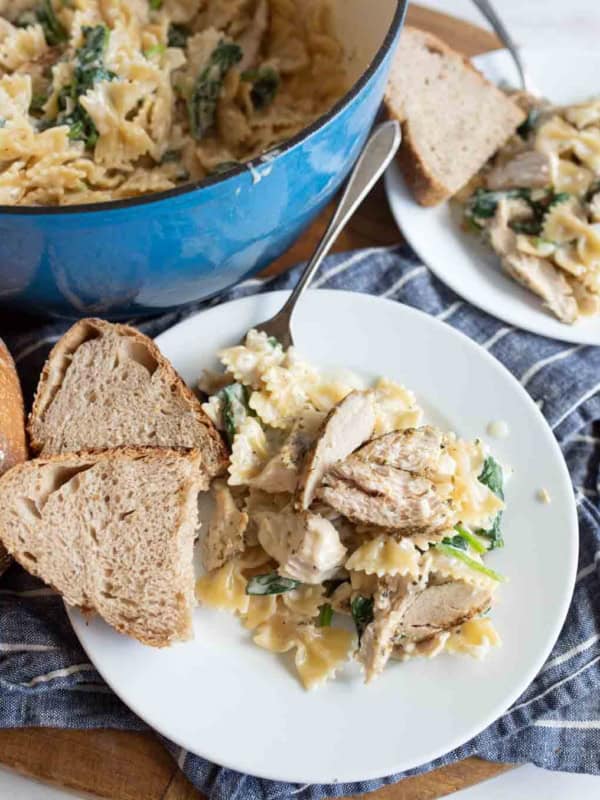This post may contain affiliate links. Please read our disclosure policy.
This coconut chicken curry couldn’t be easier to make. In just 3 easy steps and with a handful of low cost ingredients you can create an authentic Indian cuisine that is sure to be a hit.
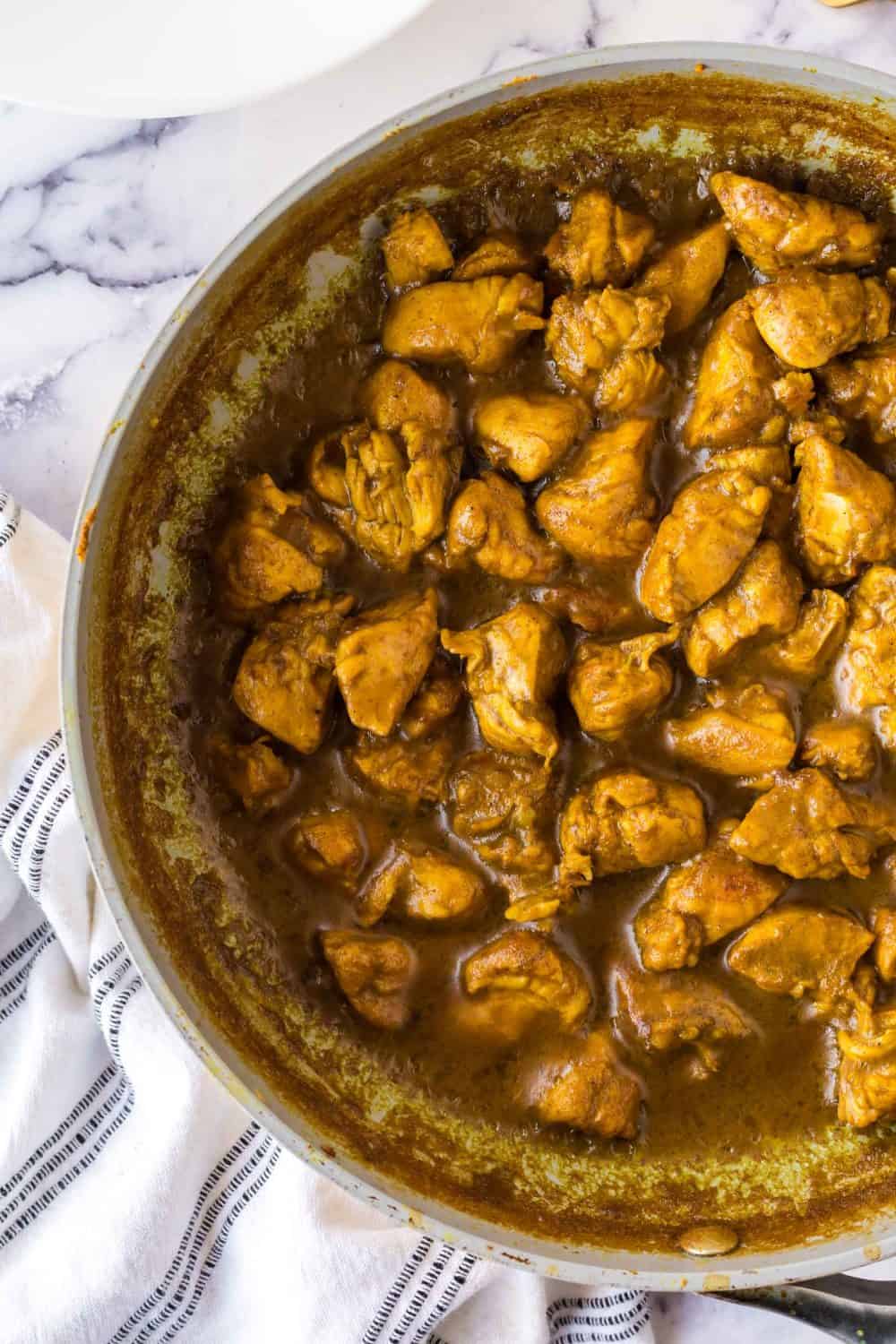
Creamy coconut milk, fragrant spices, and tender chicken come together in this dish to create a meal that will keep the whole family coming back for seconds. The key to this dish is letting the flavors develop as the curry simmers. In doing so, you are able to unlock everything that each individual ingredient has to offer.
Table of Contents
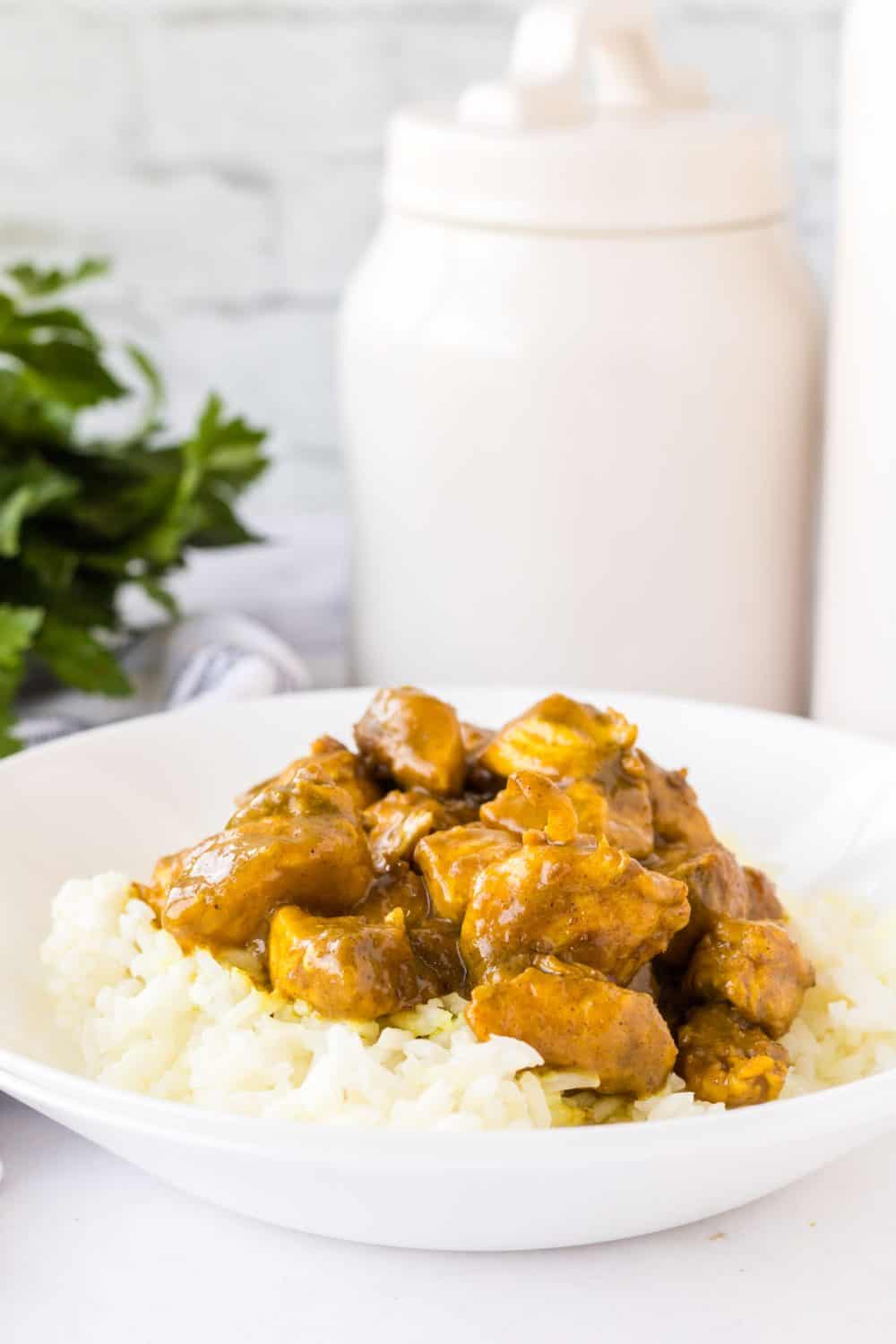
Why You’ll Love This Recipe
- Is easy and cheap to make.
- Is full of hearty, flavorful ingredients.
- Can be modified to highlight a variety of flavors.
Recipe Ingredients
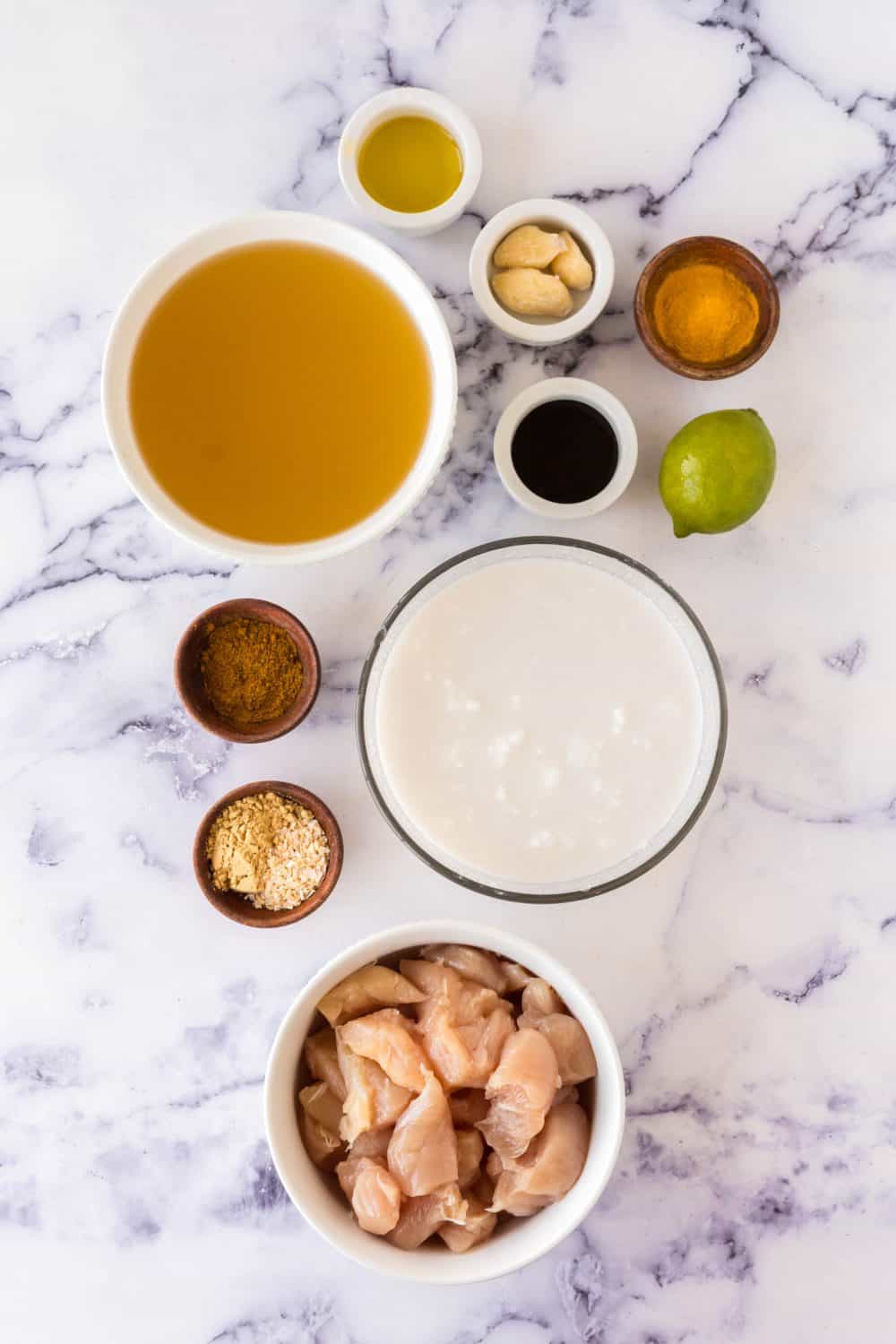
- Chicken—Breast or tenderloin, diced.
- Olive Oil—Or another high heat oil like coconut or vegetable oil.
- Spices—An aromatic blend of curry powder, ground cumin, ground ginger, and dried minced onion.
- Garlic—Finely minced.
- Chicken Broth—Acts as the base liquid of the curry and adds a little bit of flavor.
- Coconut Milk—Thickens the curry and makes it rich.
- Hoisin Sauce—Adds a nice sweet flavor to the curry.
- Lime Juice—For some acidity that balances the flavors in the sauce.
See the recipe card for full information on ingredients and quantities.
Popular Substitutions and Variations
One of our favorite things about this recipe is how easy it is to customize. Like some more heat in your curry? Sprinkle in some red pepper flakes or cayenne chili powder. Like a little bit of sweetness? Dice up half of a yellow onion and omit the dried minced onion. No matter what your preference is, this coconut curry acts as the perfect base.
How to Make Coconut Curry
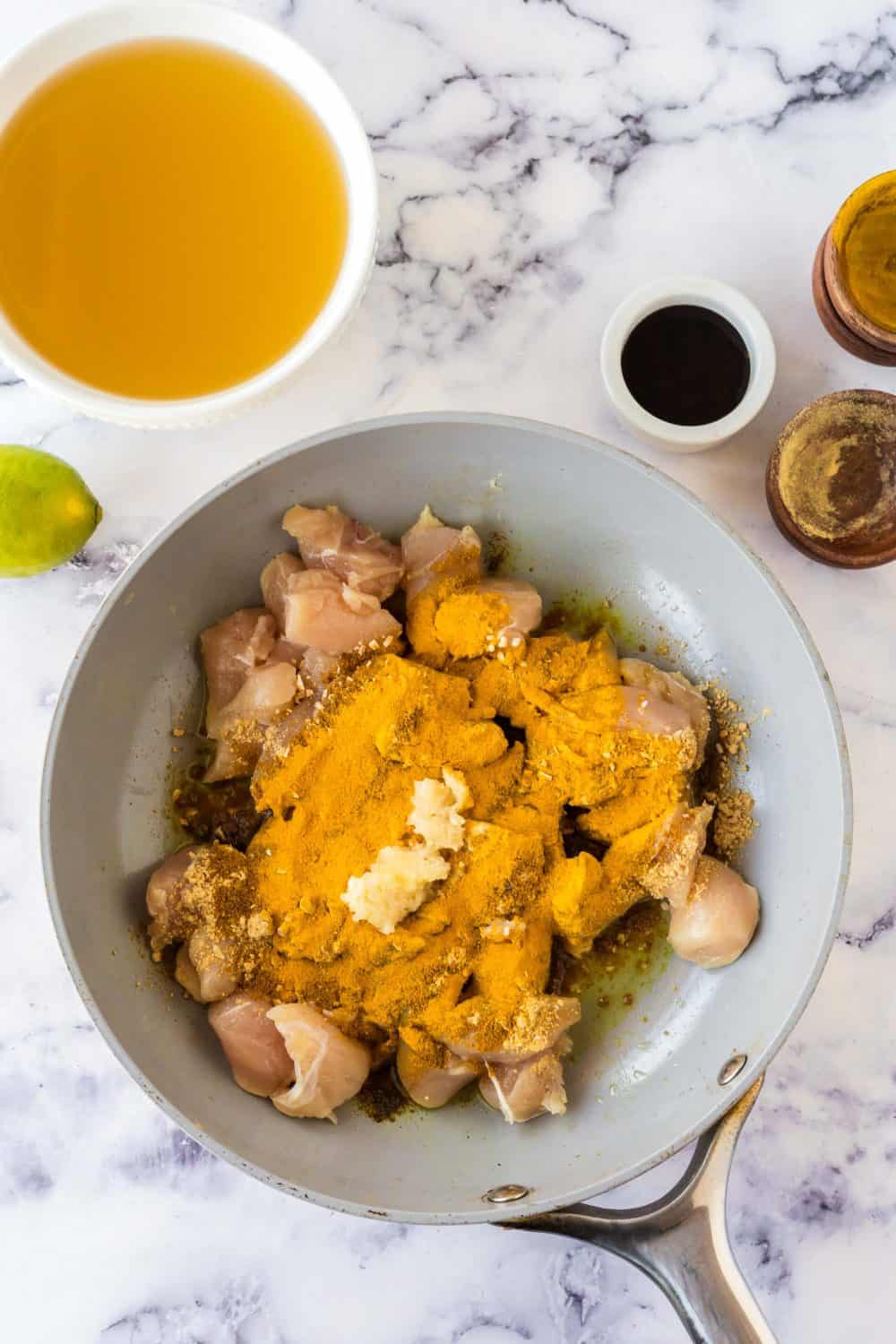
Step #1. Heat the oil in a large pan for about a minute. Add the chicken, minced garlic, and the spices. Cook the chicken until it is no longer pink in the middle.
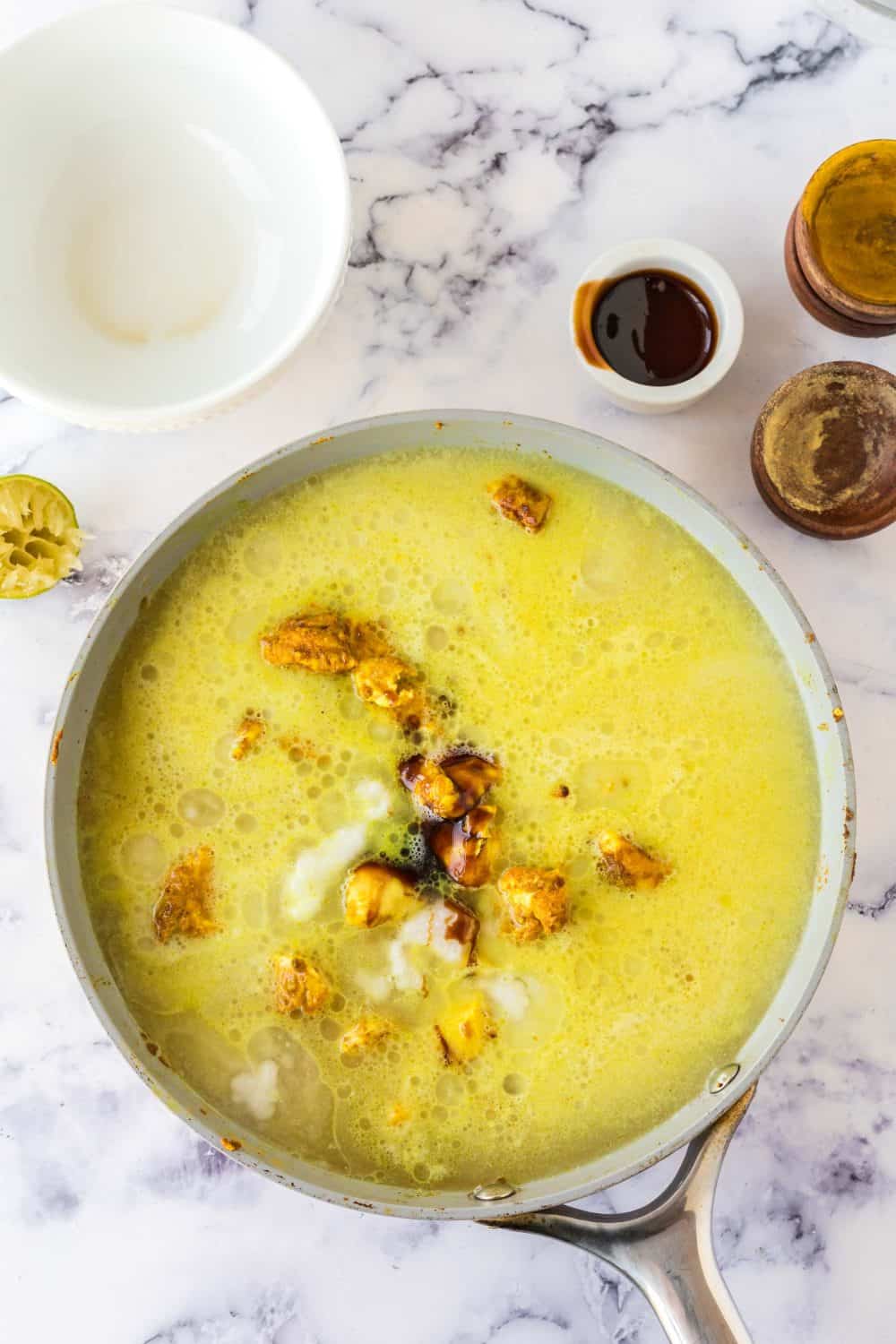
Step #2. Add the chicken broth, coconut milk, hoisin sauce, and lime juice to the pan and stir to combine.
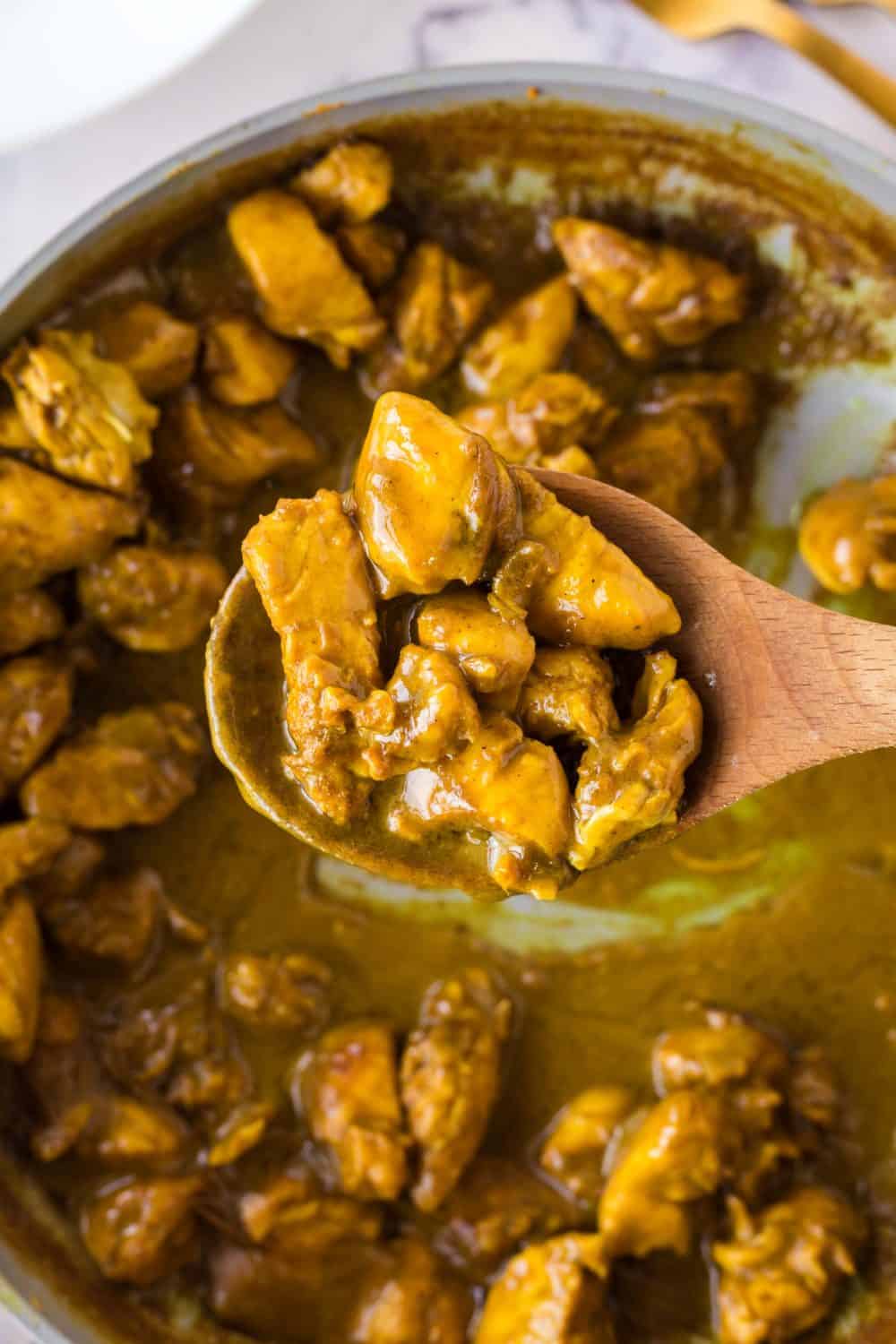
Step #3. Allow the mixture to simmer over medium heat until the sauce has thickened and is bubbly.

Step #4. Serve and enjoy!
Recipe FAQs
This is really up to you. Both unsweetened and sweetened coconut milk work great in this recipe. Most major grocery stores will carry a few varieties of both. The only major difference you will notice is a slight change in the sweetness level of your curry. Because of this, we really recommend using dried minced onion if you are using sweetened coconut milk to avoid an overly sweet flavor in your dish.
If your curry is tasting a little bland, it may need to cook longer. Allowing your curry to simmer helps unlock all the flavor in your spices. If you are still having trouble with a bland curry, try adding a few pinches of salt or a teaspoon or two of garam masala. This flavor-packed Indian spice is a popular addition to many curries and kormas.
Coconut milk and water are often confused for one another in the kitchen but they are drastically different. Coconut milk is much thicker and creamier, while coconut water is free from the fat of the coconut. Coconut water will prevent your curry from thickening, leaving you with a runny, soup-like dish.
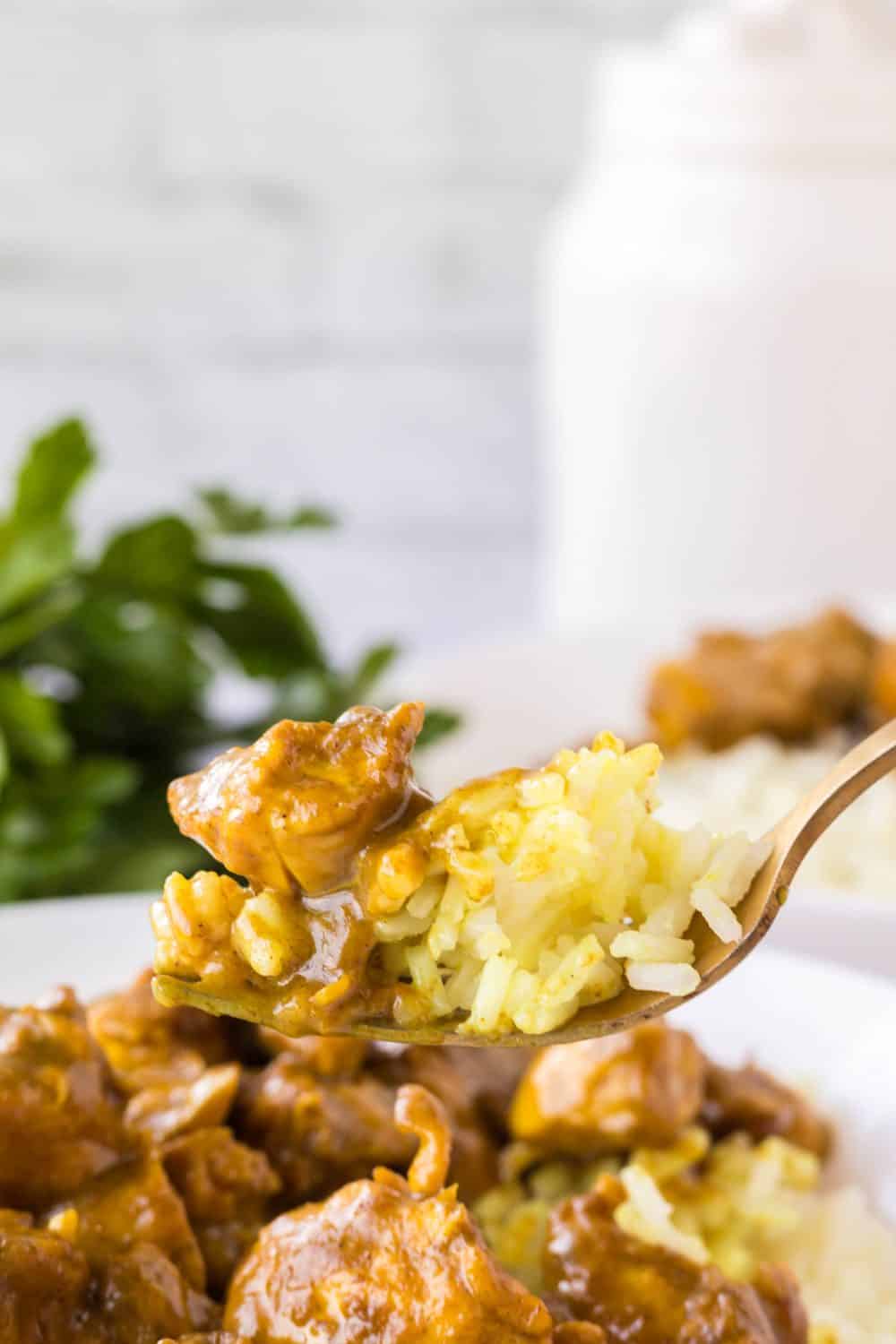
Expert Tips
- If you are using fresh onion instead of dried minced onion, you will not want to use more than half of a diced onion. Too much onion will overwhelm the dish and hinder the full flavor of the curry from coming through.
- This curry is great topped with a little bit of lime zest, cilantro, or freshly squeezed lime juice.
- Make sure your chicken curry has reached an internal temperature of at least 165°F.
- To cut down on your prep time, try switching the chicken out for some leftover rotisserie chicken.
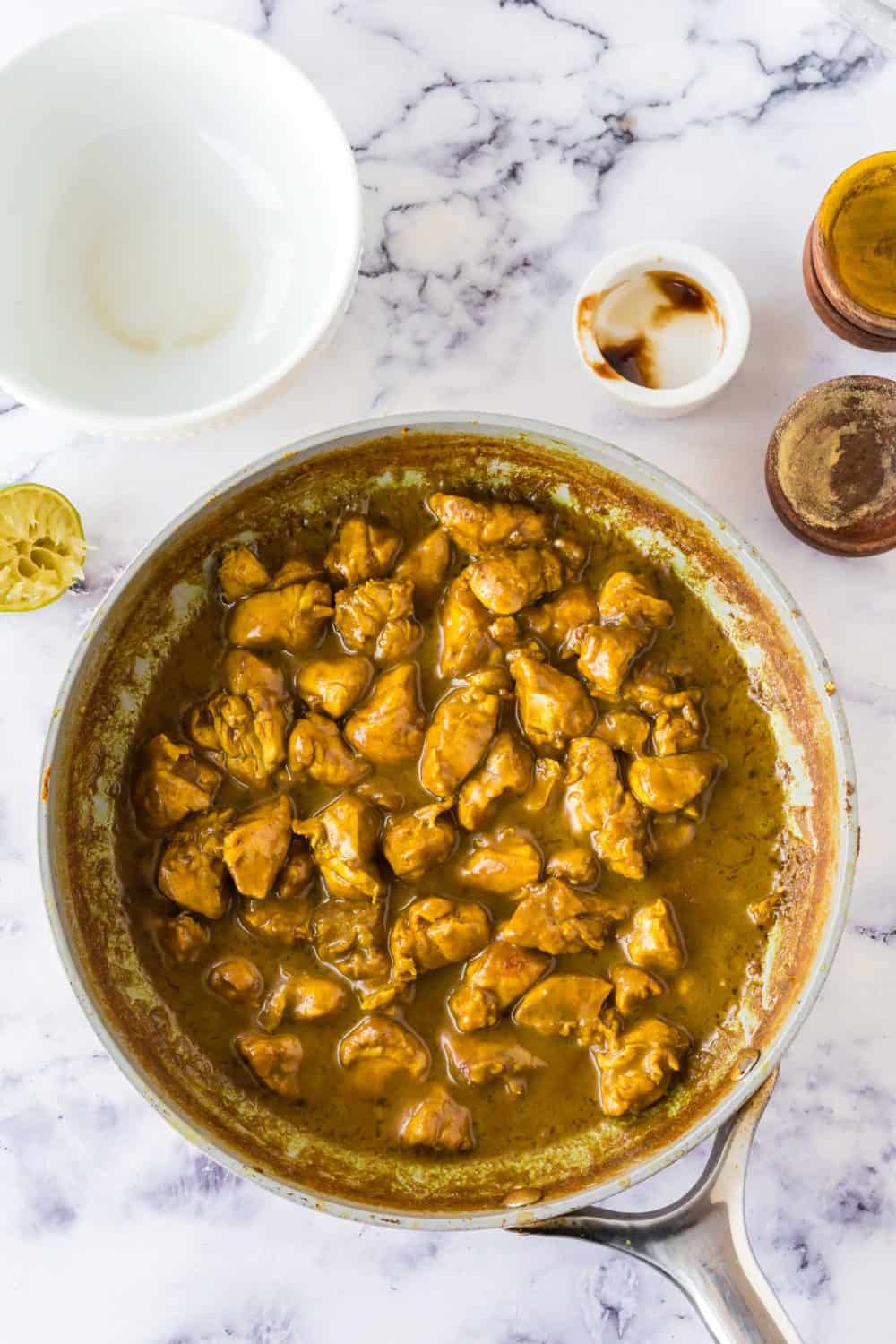
What Should I Serve With My Coconut Chicken Curry?
This delicious curry is traditionally served with basmati rice; however, any white rice will work great. Brown rice can be used as well, but it detracts from the taste of the curry a little bit. In addition to rice, we like to serve our coconut chicken curry with some store-bought naan and roasted veggies.
How to Store Leftover Curry
When you are ready to store any leftover curry, simply toss it in an airtight container. You can store your coconut curry in the fridge for up to 4 days. While you can reheat your leftovers in the microwave for about 1 ½ minutes, we like to reheat it on the stovetop to preserve as much flavor as possible. Dump your curry into a large pot or pan over medium heat and stir occasionally until it is warm all the way through.
More Chicken Recipes To Consider
Recipe Collections
Zucchini Recipes
Chicken Recipes
Easy Blackened Chicken
Chicken Recipes
57 Quick & Easy Chicken Dinner Recipes
Chicken Recipes
Garlic Parmesan Chicken and Pasta (One Pot!)
Did you try this recipe? Leave a ⭐️ rating below and share it on Instagram, Facebook, and Pinterest!
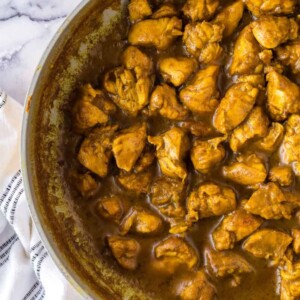
Coconut Chicken Curry
Ingredients
- 2 large chicken breasts, diced, about 1.5 pounds
- 2 teaspoon olive oil
- 3 cloves garlic, minced
- 1 tablespoon curry powder
- 2 teaspoons ground cumin
- 1 teaspoon ground ginger
- 1 teaspoon dried minced onion
- 2 cups chicken broth
- 2 cups coconut milk
- 1 tablespoon hoisin sauce
- 1 lime,, freshly squeezed
Instructions
- In a large pan, heat the oil for about a minute. Once the oil is heated, add the chicken, minced garlic, and spices. Cook the chicken for about 7 minutes, stirring occasionally.
- Once the chicken is no longer pink in the middle, add the chicken broth, coconut milk, hoisin sauce, and lime juice. Stir to combine.
- Allow the mixture to simmer for about 30 minutes over medium heat, or until the sauce has thickened.
- Serve and enjoy!
Notes
- This curry is great served over white rice or with a side of naan.
- You can store your leftovers in the fridge for up to 4 days and reheat them in the microwave for about a minute. You can also reheat your curry on the stovetop.
- As an optional substitute, you can replace the minced onion with ½ of a fresh onion that is finely diced. This will increase the onion flavor in your coconut curry.
- This curry is great topped with some extra lime juice or lime zest.
- Make sure your curry has reached an internal temperature of 165°F.

